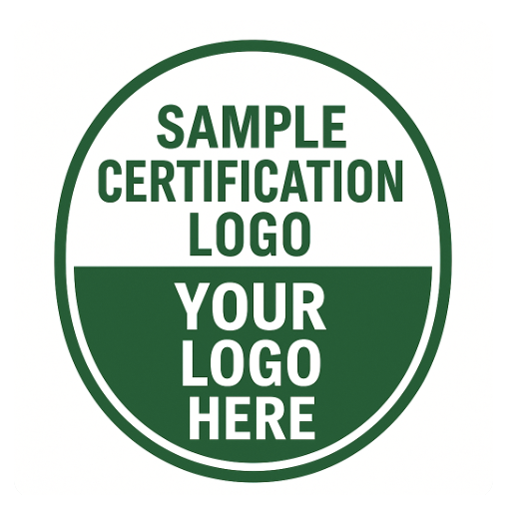Welcome to Chris Van Hook, Attorney at Law. Our firm specializes in navigating the complexities of the USDA National Organic Program (NOP) regulations. Whether you’re a business, farmer, or distributor, we provide comprehensive legal guidance to ensure your operations meet all compliance standards on a global scale.
Our Services Include:
- Assistance in applying for a Global Organic Certification: Our prior experience can help the complex application process required.
- Addressing Non-Compliances, or other Administrative Issues: Our goal is to resolve these as quickly as possible to get you back into production.
- Annual Internal Reviews: Conducting comprehensive audits to ensure compliance with USDA NOP standards.
- Procedure Development & Policy Review: Crafting and reviewing policies and procedures tailored to your agricultural business needs.
- Confidential Legal Guidance: Providing trusted legal advice on sensitive business matters under attorney-client privilege.
- Mediation/Conflict Resolution: In adherence to the NOP regulations with the goal of a resolution that is agreeable to all parties and back into production.
- Expert Witness/Second Attorney: When litigation is required. Valuations, damages, case development, research, depositions, and witness preparation.
Why Choose Van Hook Law? With extensive experience in agricultural law and USDA regulations, our firm is committed to offering reliable, effective, and strategic legal solutions. We understand the intricate details of the NOP, ensuring your business can thrive in the global organic market.
Additional Certifications Available
Since the USDA National Organic Program started in 2003, it has grown to become the largest organic certification program in the world. In many ways the program is the “Gold Standard” for global organic development. However, since the program began 22 years ago, it has become increasingly more expensive, time consuming and troublesome to adhere to the many additional requirements of the program. Staying compliant with the ever changing regulations has made the USDA NOP program difficult for many operations. Additionally, the range of the USDA National Organic Program may not be required for your particular farm, processor, or location for the marketing of your products. After working in the USDA NOP program since it began in 2003, the Law Office of Chris Van Hook has begun offering the following Alternative Certifications for the farmers and processors that qualify.
The Alternative Certifications are offered to any form of agriculture or processing that would be eligible under the USDA NOP program or a similar globally recognized organic certification or licensing program. The process to become Alternative Certified involves one or more components of testing, analysis, evaluation and document review by qualified staff of your products for the purpose of certification. Please find below, an example logo next to each alternative certification description. These sample logos are to show that we can help you, or you can create yourself, a logo and certification brand name for your particular region, country or need. We can help you build a certification logo and brand that your members will be proud of!

The Organically Managed certification is a great alternative to the overly burdensome USDA NOP program, and may be very well suited to the needs of a farm or processor that is not needing the global reach of the USDA NOP. The organically managed certification will help communicate to their customers the steps they are taking to manage their products organically. We will evaluate your procedures and test/analyze/review your products as appropriate as part of the process of becoming certified under this program. Contact us here for more information and to see if this program will best fit your operation’s needs.

The Best Practices Certified certification is available to the many farmers and processors that might use non organic methods, but use them in a responsible manner. This certification still requires the use of organically allowed pest controls, but does allow the limited use of non organic fertilizers or soil amendments. Proper procedures must be in place to limit runoff, and to protect against the overuse of the non organic materials within the operation. We will evaluate your procedures and test/analyze/review your products as appropriate as part of the process of becoming certified under this program. The allowance of a limited use of non organic materials opens up a certification to the many farms or processors that have been locked out of the USDA NOP, while still providing a certification to better communicate to their customers the steps they are taking as a responsible business. Click Here for more information and to see if this program will best fit your operation’s needs.

The Regenerative Agriculture Certified Program. Regenerative agriculture is finally beginning to gain the attention and consumer interest it has deserved for many years. Regenerative agriculture leads to more diversity within a farming system and greater areas set aside for wildlife habitat. Regenerative agriculture requires an active program of rebuilding soils, watersheds and wildlife on the land being farmed. Regenerative agriculture can begin to restructure the diminished ecosystems so damaged by decades of commercial agriculture.
The Regenerative Agriculture CertifiedProgram is available for participants of either program mentioned above. Contact us for any additional questions!

The Certified Vegan Program. There has been strong interest in Certified Vegan foods and processed food products for many years. It can be difficult for a farm or processor to qualify as no animal products may be used in any stage of the growing or processing of the Certified Vegan products. For those dedicated farmers and processors that are able to qualify for this standard, the Certified Vegan certification can be a valued addition to their marketing program in meeting consumer demand. Contact us with any additional questions!

Non GMO Certified Program. Greater numbers of consumers are looking for less GMOs in their diets as food systems become more industrialized. A sound NON GMO program can allow the farmers and processors that take the extra steps required to qualify for this program to reach those consumers. Reaching these consumers can expand existing markets and open new ones for those Non GMO Certified commodities.